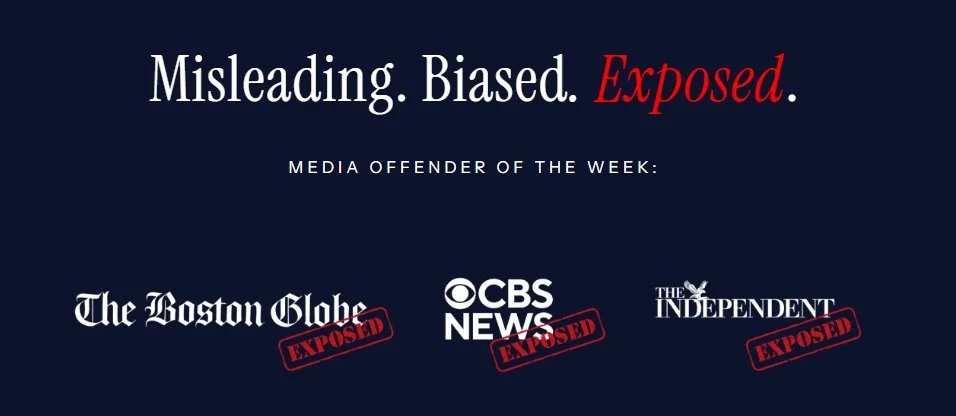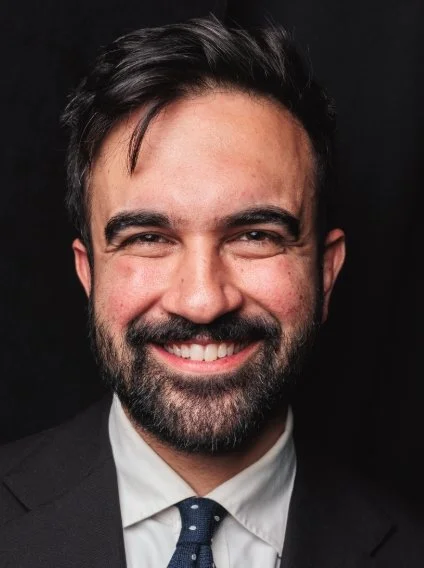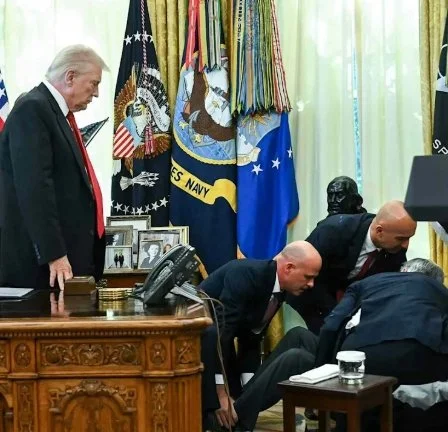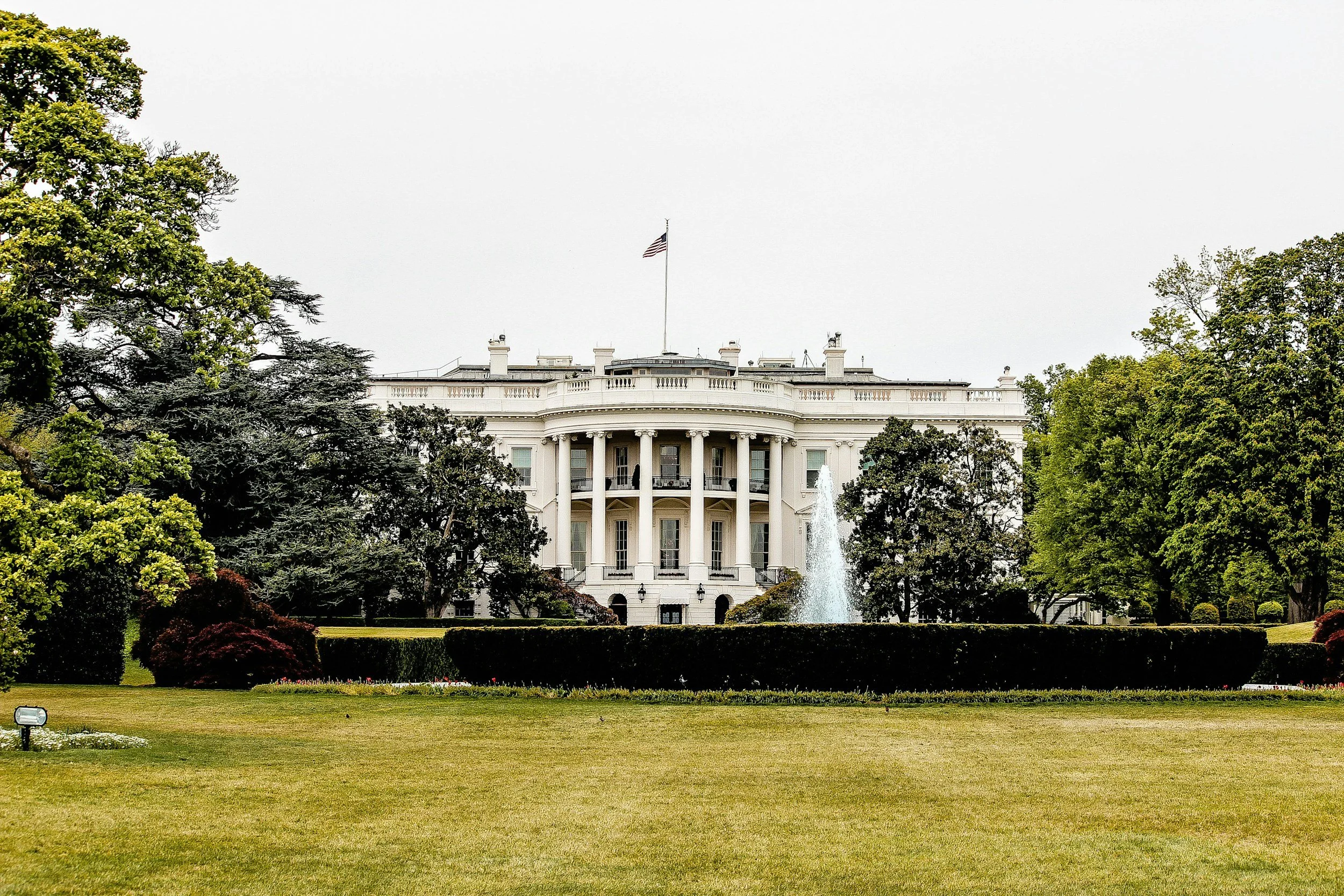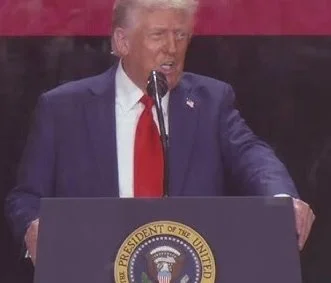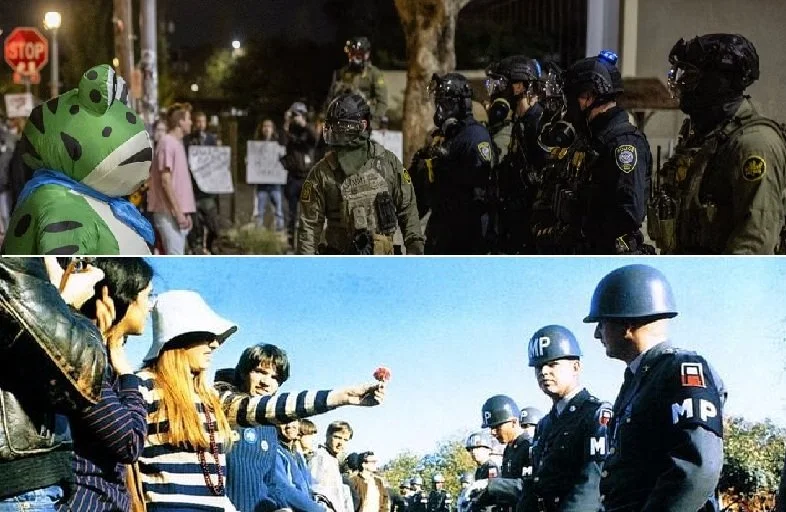Weaponizing Martyrs: A Critique of Trump’s Eulogy for Charlie Kirk
On October 14th, 2025, Donald Trump delivered a eulogy for Charlie Kirk that blurred the line between mourning and political theater. Ostensibly a tribute to a life cut tragically short, the speech quickly revealed itself as a carefully orchestrated platform to mobilize conservative ideology and reinforce Trump’s political brand. The event transformed grief into spectacle and martyrdom into propaganda, elevating Kirk from a flawed human being into an untouchable icon of conservative mythology.
The tragedy of Kirk’s assassination in Utah is undeniable. A man lost his life, and his family experienced an unimaginable trauma. However, any honest analysis must confront the reality of the ideological damage Kirk propagated in his lifetime. Through Turning Point USA, Kirk worked systematically to cultivate polarization on college campuses, inflame partisanship among young Americans, and weaponize faith and nationalism in the service of a narrow political agenda. The eulogy treated this ideological influence as heroic, framing it as an unambiguous good, and erased the consequences of the divisive politics he championed.
Our analysis examines Trump’s speech as a case study in the political psychology of martyrdom. It investigates how grief, religiosity, patriotism, and personal loyalty are exploited to mobilize audiences and normalize a partisan worldview. By unpacking the thematic strategies within the eulogy, we illuminate how public mourning can be manipulated to reinforce ideology, create moral binaries, and perpetuate political myths. The goal is not to diminish the human tragedy of Kirk’s death, but to critically assess how both Trump and Kirk’s legacies are being repurposed for political gain.
We will examine the speech in terms of six central themes: the construction of martyrdom, the amplification of conservative heroism, the demonization of political opponents, the instrumentalization of faith and patriotism, the blending of grief with political spectacle, and the mobilization of audiences for future political and ideological goals. Each theme will be analysed through examples drawn directly from the speech, highlighting the interplay of emotional appeal, myth-making, and strategic narrative framing.
Eulogy or Propaganda?
While Trump’s speech outwardly functions as a eulogy, much of it veers into explicit political messaging and mythmaking, raising questions about the line between honoring a life and weaponizing it for ideological purposes. The constant oscillation between grief and partisan mobilization blurs mourning with recruitment, transforming Kirk’s death into a platform for political theater. Hyperbolic statements about audience size, global recognition, and Kirk’s influence on electoral outcomes illustrate a clear intent to glorify both the deceased and the movement he championed.
Trump frequently digresses into policy commentary and personal political announcements that have little to do with the memorial itself. For instance, he shifts from praising Kirk’s campus activism directly into claims about autism policy, tariffs, and crime reduction, suggesting that Kirk’s approval or memory validates these initiatives. Lines such as “We’re gonna be talking in the Oval Office, in the White House about autism…20 years ago, 1 in 10,000 were born with autism, 20 years ago, the most recent survey says 1 in 12” illustrate a dramatic divergence from the purpose of a eulogy. The speech becomes less about mourning and more about consolidating political influence under the guise of homage.
Equally important is the need to reckon with the harmful beliefs and rhetoric that Kirk himself promoted. Public records of his statements reveal deeply troubling views, from overt racism and Islamophobia to misogyny and support for extreme interpretations of conservative ideology. For example, Kirk expressed ideas such as “Most people are scared when they see a black pilot flying a plane” and “Women’s natural place is under their husband’s control.” These statements demonstrate a pattern of amplifying prejudice and exclusion while framing it as cultural or political insight. The eulogy, by erasing critique and portraying Kirk exclusively as virtuous, omits this harm entirely, sanitizing a record that contributed to societal polarization.
Moreover, Trump’s framing of Kirk as a martyr implies that the consequences of his activism—including fostering division and promoting extremist ideas—are irrelevant compared to the tragedy of his death. Lines like “Charlie’s message has not been silenced. It now is bigger and better and stronger than ever before” transform the eulogy into a call to continue Kirk’s ideological project uncritically. In doing so, the speech conflates heroism with influence, encouraging audiences to admire and emulate a figure whose legacy includes both political accomplishment and documented harmful rhetoric.
This underscores a central tension in Trump’s eulogy: grief and reverence are inseparable from propaganda and political instruction. The public mourning of a young activist becomes a mechanism for valorizing partisan extremism, while dangerous statements and beliefs are conveniently omitted or reframed. The result is a narrative that honors Kirk’s death while whitewashing the societal impact of his life, weaponizing tragedy to advance ideological objectives.
Theme 1: The Construction of Martyrdom
One of the central strategies in Trump’s eulogy is the transformation of Charlie Kirk from a young, fallible man into an immortalized martyr for conservative ideology. From the outset, Trump frames Kirk’s death not as a tragic loss of life but as a symbolic victory, turning personal grief into political capital. This construction of martyrdom serves two functions: it elevates Kirk beyond critique and it mobilizes audiences through emotional identification with a perceived moral struggle.
Trump repeatedly emphasizes Kirk’s supposed immortality, presenting his death as a passage into legendary status. Phrases such as “his voice on earth will echo through the generations” and “he will live forever” serve less to comfort mourners and more to create a mythic figure whose influence cannot be questioned. By calling him a “martyr now for American freedom,” Trump directly links Kirk’s death to a larger ideological narrative, suggesting that the violence inflicted upon him is both a moral affront and a rallying cry for the conservative cause.
The political psychology at work here relies on the human tendency to idealize those who die violently for a cause. Martyr narratives intensify in-group cohesion, inspire loyalty, and encourage emulation of the martyr’s values. In this speech, Trump weaponizes Kirk’s murder by framing it as evidence of the existential threat posed by ideological opponents. The audience is positioned to feel that Kirk’s death validates their own fears, anger, and ideological commitments, turning grief into a motivating force for partisan action.
However, this framing is deeply problematic. It erases the complexity of Kirk as an individual and the consequences of the polarizing politics he championed. The eulogy presents his ideological work, particularly the aggressive cultivation of conservative influence on campuses, as heroic, without acknowledging how it fostered division, demonized opponents, and contributed to the hyper-partisan environment that contextualizes his assassination. In effect, Trump uses the tragedy of Kirk’s death to sanitize and sanctify the harm that his life’s work inflicted on political discourse and civic life.
Trump’s martyr narrative also positions him personally as the custodian of Kirk’s legacy. By repeatedly inserting himself into the story; claiming intimate knowledge of Kirk’s goals, conversations, and ambitions, Trump merges his political persona with Kirk’s, reinforcing the notion that loyalty to Kirk’s memory is inherently loyalty to Trump. This conflation transforms mourning into a vehicle for political recruitment and ideological reinforcement.
In sum, the construction of martyrdom in Trump’s eulogy is less a tribute to a lost life and more a deliberate instrument of political psychology. By portraying Kirk as an immortalized icon, Trump elevates partisanship over mourning, weaponizes tragedy to demonize opponents, and frames grief as a call to ideological action.
Theme 2: Amplification of Conservative Heroism
Beyond martyrdom, Trump’s eulogy functions as a systematic amplification of Charlie Kirk’s achievements, casting him as an infallible hero of conservative ideology. This amplification transforms ordinary accomplishments into mythic feats, presenting Kirk as not only tireless and brilliant but indispensable to the success of the conservative movement. The speech carefully constructs a narrative in which Kirk is both the architect and savior of a political revolution, erasing nuance and elevating ideology above reality.
Trump repeatedly exaggerates Kirk’s influence, portraying him as the linchpin in electoral victories and youth mobilization. Statements such as “We won more young people than any Republican candidate in the history of our country” and “Charlie Kirk was, without a doubt, among the most influential figures in the most important election in the history of our country” suggest that Kirk’s personal activism directly determined outcomes that were, in reality, the product of complex political dynamics. By attributing systemic successes to a single individual, Trump transforms Kirk into a heroic figure whose very existence is framed as critical to national destiny.
The speech also mythologizes Kirk’s personal sacrifices and work ethic. Trump details how Kirk traveled 300 days a year, lived out of friends’ couches, and refused a paycheck for five years, emphasizing his purported selflessness and dedication to the conservative cause. This narrative constructs a heroic ideal of relentless labor and moral purity, portraying Kirk as a model citizen whose devotion justifies the political and cultural battles he waged. By elevating these qualities, the eulogy implicitly valorizes a style of activism that prizes endurance, charisma, and ideological zeal over deliberation, compromise, or critical reflection.
Trump’s amplification extends beyond political achievement into personal virtue. Kirk is repeatedly described as compassionate, generous, and committed to persuading opponents rather than silencing them. While framed as admirable, these claims serve to create a mythic moral narrative, contrasting Kirk’s supposed benevolence with the demonized radical left. By doing so, Trump fuses heroism with ideological orthodoxy, signaling that virtue is inseparable from allegiance to a conservative worldview.
The political psychology underpinning this amplification is clear. Hero narratives inspire identification, loyalty, and emulation. They also provide a moral framework in which followers are encouraged to see themselves as participants in a larger, righteous struggle. By presenting Kirk as a flawless conservative hero, Trump motivates his audience to internalize his ideological priorities and moral judgments without question. At the same time, it erases legitimate critique of Kirk’s methods or the consequences of his divisive activism, sanitizing the social and political polarization he contributed to.
Ultimately, the amplification of conservative heroism in the eulogy is both performative and strategic. Kirk is elevated from a politically active young man into an almost mythical figure whose personal virtues validate partisan ideology, whose accomplishments are framed as historically transformative, and whose death serves as both inspiration and political capital. This creates a narrative in which grief, admiration, and ideological loyalty are inseparably intertwined, furthering Trump’s broader project of consolidating influence through emotional and moral appeals.
Theme 3: Demonization of Political Opponents
A core feature of Trump’s eulogy is the consistent portrayal of political opponents as existential threats. The speech casts the left not merely as ideological adversaries but as dangerous, violent, and morally corrupt actors responsible for the death of a young conservative. By framing Kirk’s assassination as the inevitable consequence of left-wing aggression, Trump weaponizes fear and resentment, turning grief into a partisan rallying cry.
Throughout the speech, Trump repeatedly emphasizes the threat posed by “the radical left,” “Antifa terrorists,” and “paid agitators.” Incidents of campus protests, fire alarms, and bomb threats are presented not as isolated events or typical expressions of dissent but as organized, malevolent attacks on freedom itself. By exaggerating the danger of these actors, Trump constructs a narrative in which Kirk’s activism and, by extension, the conservative cause are under constant siege. This framing transforms political disagreement into a moral and physical battlefield, implying that opposition is not merely wrong but inherently dangerous and illegitimate.
Trump also personalizes the threat, portraying Kirk as uniquely brave and virtuous in the face of left-wing hostility. Statements such as “the radicals and their allies in the media…tried to silence Charlie for a simple reason, because he was winning” suggest that any success of the conservative movement is met with coordinated opposition and censorship. By framing opponents as envious, aggressive, and deceitful, Trump solidifies a moral binary in which the audience is encouraged to view themselves as defenders of truth, liberty, and righteousness. This binary leaves little room for critical thought or nuanced engagement with political reality.
The political psychology here relies on fear, moral outrage, and in-group solidarity. By portraying Kirk as a victim of a coordinated ideological assault, the eulogy mobilizes audience loyalty through shared perception of threat. The left is rendered not just wrong but actively malevolent, creating a sense of urgency that justifies extraordinary measures in defense of the conservative cause. This demonization amplifies partisanship, reinforces group identity, and encourages a moralized perception of politics where opposition is equated with danger.
Importantly, the speech also absolves Kirk and, by extension, Trump, from scrutiny. By framing any opposition as irrational or violent, the eulogy positions their actions as virtuous responses to external threats. The harm that Kirk caused through aggressive campus activism, the cultivation of ideological polarization among young people, and the targeting of opponents for public criticism is erased. In this narrative, only Kirk’s bravery and the malignancy of his opponents exist, simplifying complex social and political dynamics into a moral tale of heroes and villains.
In sum, the demonization of political opponents in Trump’s eulogy serves to consolidate ideological loyalty, manipulate grief, and justify aggressive political action. By portraying the left as a coordinated, immoral threat, the speech transforms tragedy into a tool for partisan mobilization, reinforcing both Kirk’s hero narrative and Trump’s ongoing project of polarizing American political life.
Theme 4: Instrumentalization of Faith and Patriotism
Trump’s eulogy frequently conflates religious devotion and patriotic fervor with political loyalty, turning deeply personal values into instruments for ideological mobilization. Throughout the speech, Kirk’s Christianity and love of America are portrayed not simply as personal traits, but as moral endorsements for a conservative political worldview. By framing faith and patriotism as inseparable from partisan action, Trump uses emotional and cultural symbols to reinforce audience loyalty and legitimize ideological goals.
Kirk is depicted as devout and spiritually guided, with repeated references to his prayerful life. Phrases such as “Before each appearance, he prayed these words: ‘God use me for your will’” and “Charlie who spent his life speaking with the critics of these traditions ultimately became convinced that we needed…a spiritual reawakening” portray him as morally upright and divinely sanctioned. This framing presents conservative activism as an extension of spiritual duty, suggesting that opposition to these ideals is not merely political disagreement but an affront to God. By co-opting faith, Trump positions ideological adherence as a moral imperative, transforming religious devotion into a mechanism for political compliance.
Patriotism is similarly instrumentalized. Kirk’s love for America is depicted as absolute and virtuous, exemplified by statements like “Charlie Kirk loved America with everything he had. And as we can see so clearly today, America loved Charlie Kirk.” Here, patriotism becomes a currency of moral authority, justifying Kirk’s activism and, by extension, Trump’s political agenda. The speech repeatedly ties national well-being to conservative policy goals, implying that loyalty to the country and loyalty to the movement are one and the same. By doing so, it conflates civic identity with partisan identity, making political dissent appear unpatriotic.
This strategy leverages deeply held values to strengthen in-group cohesion. Faith and patriotism are powerful emotional motivators, and by linking them to ideological allegiance, the eulogy encourages audiences to internalize Kirk’s mission as both morally and nationally necessary. Emotional resonance with spiritual and national symbols amplifies the persuasive power of the speech, making ideological commitments feel personal and sacred.
Critically, this instrumentalization erases complexity and suppresses dissent. Kirk’s faith and patriotism are presented as unambiguously virtuous, ignoring how his activism often marginalized opposing voices or fostered polarization on campuses. By framing ideological adherence as a moral and spiritual duty, the speech discourages critical reflection, rewarding conformity and framing critique as both unpatriotic and irreligious.
In conclusion, the instrumentalization of faith and patriotism in Trump’s eulogy transforms deeply personal values into tools for political mobilization. Kirk’s religious devotion and national pride are repurposed to validate partisan objectives, reinforce moral binaries, and mobilize audiences emotionally, demonstrating how grief and reverence can be strategically leveraged for ideological gain.
Theme 5: Blending Grief with Political Spectacle
Trump’s eulogy transforms personal mourning into a highly orchestrated political spectacle, using grief as a tool for audience manipulation and partisan reinforcement. The ceremony, staged in a stadium with VIP politicians and tens of thousands of attendees, functions less as a private tribute and more as a demonstration of political power and ideological solidarity. By turning death into performance, Trump weaponizes emotion, amplifying both reverence for Kirk and loyalty to the conservative cause.
The speech repeatedly emphasizes the scale of attendance and attention, describing the crowd in hyperbolic terms: “this is not an arena. This is a stadium…they’re all over the place” and referencing global demonstrations in cities like Calgary, Berlin, and Sydney. These depictions transform mourning into a collective spectacle, suggesting that Kirk’s death has catalyzed worldwide recognition and support for conservative ideology. Grief becomes performative, reinforcing group identity and projecting ideological legitimacy to both participants and observers.
Trump also interweaves personal and family tragedy into the spectacle, frequently invoking Kirk’s widow and children. Statements such as “an entire nation wraps its loving arms around you and your beautiful children” serve dual purposes: they dramatize the emotional stakes of the event while aligning audience empathy with political allegiance. By centering the grief of the family, Trump encourages the audience to internalize the loss as a shared emotional and ideological experience, effectively converting mourning into a call to partisan action.
Emotion is further amplified through mythic storytelling and hyperbolic language. Kirk is depicted as tireless, selfless, and heroic, while opponents are consistently framed as malicious or violent. These narratives exploit natural human responses to tragedy—sympathy, outrage, and admiration—to reinforce loyalty and mobilize action. The spectacle, therefore, functions as a psychological tool, fusing mourning with ideological reinforcement and audience participation in a moralized political narrative.
The political implications of this blending of grief and spectacle are significant. By turning mourning into performance, Trump consolidates emotional investment in Kirk’s mythologized heroism, conflates personal loss with partisan identity, and normalizes the use of tragedy for political gain. The audience is positioned to experience grief not just as sorrow but as a reaffirmation of political loyalty, transforming empathy into ideological reinforcement.
Critically, this strategy obscures the harm that Kirk’s activism caused while elevating the tragedy of his death into a moral and political event. The spectacle masks the divisive consequences of his career, using mourning as a vehicle to legitimize ideological victories and mobilize the base. Grief becomes a tool for recruitment, moral signaling, and amplification of partisan narratives, demonstrating the strategic manipulation of emotion in service of political objectives.
Theme 6: Mobilization for Future Ideological Goals
Trump’s eulogy consistently transforms mourning and admiration for Charlie Kirk into a directive for continued political and ideological action. The speech positions Kirk’s death not as an endpoint but as a catalyst for reinforcing conservative activism, consolidating loyalty, and advancing partisan objectives. In this way, grief is converted into strategic mobilization, with the martyr’s legacy serving as both inspiration and obligation.
Throughout the speech, Trump emphasizes the continuity of Kirk’s work and the responsibility of the living to carry it forward. Statements such as “his message has not been silenced. It now is bigger and better and stronger than ever before” and “we will carry forward the torch of liberty that Charlie Kirk held so proud and so high” frame Kirk’s ideological mission as ongoing and urgent. This rhetoric implies that loyalty to Kirk’s memory requires active participation in the conservative cause, merging personal mourning with political duty.
The speech also underscores the importance of institutional and grassroots engagement. Kirk’s founding of Turning Point USA is portrayed as the vehicle for sustained conservative influence, with Trump claiming that under the leadership of his widow Erika, the organization “will become bigger and better and stronger than ever before.” By highlighting organizational continuity, Trump links personal tribute to structural mobilization, presenting grief as a tool for recruitment, activism, and ideological consolidation. Kirk’s life becomes a template for political engagement, with his death serving as a call to action for a new generation of conservative operatives.
Furthermore, Trump frames national policies and partisan victories as extensions of Kirk’s legacy, reinforcing the idea that political engagement is a moral imperative. References to electoral successes, tariffs, and crime reduction are tied directly to Kirk’s vision and activism, suggesting that his influence persists not just culturally but materially in governance. This narrative conflates reverence for the deceased with loyalty to contemporary policy agendas, creating a seamless link between mourning and mobilization.
The psychological effect of this strategy is twofold. First, it converts emotional responses; grief, admiration, outrage into motivation for political participation. Second, it reinforces ideological identity by portraying loyalty to Kirk as inseparable from fidelity to the conservative movement. Audience members are encouraged to see themselves as participants in a moral and political struggle, with the martyr’s death validating the urgency and righteousness of their engagement.
Critically, this approach also masks the harm caused by Kirk’s activism while glorifying its impact. By framing political and cultural battles as heroic and morally necessary, the speech discourages reflection on the divisive consequences of his actions. The narrative turns tragedy into recruitment, personal loss into political capital, and grief into ideological obligation, demonstrating the strategic instrumentalization of emotion to advance partisan objectives.
Simply Put
Donald Trump’s eulogy for Charlie Kirk was not an act of mourning but a performance of power and a showcase in political exploitation disguised as tribute. Rather than honoring a life tragically cut short, Trump seized the moment to weaponize grief, transforming personal loss into partisan gain and a platform for his own ideological consolidation. In framing Kirk as an untouchable martyr, amplifying his achievements to mythic proportions, demonizing political opponents, and instrumentalizing faith and patriotism, Trump did not simply commemorate a friend but staged a spectacle of manipulation in which sorrow became a tool of recruitment and tragedy, a vehicle for propaganda.
Every line of the speech was calculated. By erasing the harms Kirk promoted, Trump sanitized a divisive legacy, presenting a morally simplistic narrative in which conservative heroism is unassailable, opposition is inherently evil, and loyalty to the deceased is inseparable from loyalty to him. In blending grief with spectacle, he turned a funeral into political theater, co-opting the audience’s empathy to reinforce his own authority and validate his worldview. Personal loss became a call to action, mourning became obligation, and reverence became submission to an ideological hierarchy he orchestrated.
This eulogy exposes Trump’s relentless exploitation of emotion. He converts tragedy into propaganda, admiration into loyalty, and death into a tool for partisanship. It is a stark demonstration of his willingness to appropriate human suffering to advance his own brand, reshape public memory, and silence nuance. In the hands of Trump, grief is never private, mourning is never sacred, and even death itself becomes a stage for self-aggrandizement. His performance at Kirk’s eulogy is not just a political maneuver but a moral spectacle and a chilling reminder of the ease with which public tragedy can be transformed into a weapon for power.
Sources
References
Durkheim, E. (1912/2001). The elementary forms of religious life. Oxford University Press.
Girard, R. (1972). Violence and the sacred. Johns Hopkins University Press.
Wodak, R. (2015). The politics of fear: What right-wing populist discourses mean. SAGE Publications.
Transcript:
Donald Trump 00:00:00-00:00:26 (26 sec)
Well, I want to thank you very much, Lee. You've been there from the beginning with us, Lee, and we appreciate it. Nobody can sing that song like Lee Greenwood. Thank you very much, Lee, very much for being here. And his voice has not changed. You know? It's pretty amazing. And a special thank you to Erika.
Donald Trump 00:00:26-00:01:05 (40 sec)
Because today, America is a nation in grief, a nation in shock, and a nation in mourning. Less than two weeks ago, our country was robbed of one of the brightest lights of our times, a giant of his generation, and above all, a devoted husband, father, son, Christian, and patriot. Charles James Kirk was heinously murdered by a radicalized, cold-blooded monster for speaking the truth that was in his heart.
Donald Trump 00:01:05-00:01:42 (37 sec)
He was violently killed because he spoke for freedom and justice, for God, country, for reason, and for common sense. He was assassinated because he lived bravely, he led boldly, and he argued brilliantly without apology. He did what was right for our nation. And so, on that terrible day, September 10th, 2025, our greatest evangelist for American liberty became immortal.
Donald Trump 00:01:42-00:02:24 (42 sec)
He's a martyr now for American freedom. I know I speak for everyone here today when I say that none of us will ever forget Charlie Kirk, and neither now will history. Because while Charlie has been reunited with his Creator in heaven, his voice on earth will echo through the generations, and his name will live forever in the eternal chronicle of America's greatest patriots.
Donald Trump 00:02:24-00:02:52 (28 sec)
He will live forever. To Charlie's incredible and beautiful widow, Erika, we know the weight of this monumental loss is almost unbearable. But even in the midst of heartache and pain too great to even fathom, you have somehow found the strength and deep faith to be a comfort to millions and millions of people.
Donald Trump 00:02:52-00:03:25 (33 sec)
And thank you very much, Erika. Thank you very much. Today an entire nation wraps its loving arms around you and your beautiful children. We share in your immense and overwhelming sorrow, and we vow that we will do everything we can to ensure that your children grow up in a land where their father is honored and revered as a great American hero.
Donald Trump 00:03:25-00:04:05 (41 sec)
That's what he is. To Charlie's parents who lost their beloved son and to the entire Kirk family, we know that no words can ever be enough to fill the void he leaves behind. That's a void that just can't be filled. But I hope the extraordinary outpouring of emotion over these past 11 days has comforted you with the knowledge that your son brought more good and love into this world in his 31 short years than most people, even very, very successful people can bring in a lifetime.
Donald Trump 00:04:05-00:04:53 (48 sec)
Charlie Kirk loved America with everything he had. And as we can see so clearly today, America loved Charlie Kirk. And he could always draw a big crowd. Look at this today. Look at what's gone on. This is a big crowd. Here today we have the Vice President of the United States, J.D. Vance. We have the Speaker of the U.S. House of Representatives, Mike Johnson.
Donald Trump 00:04:53-00:05:34 (41 sec)
We have countless members of the United States Senate, and I'm sorry, I'm not gonna introduce you, but I'll be up here. They're all over the place. And likewise, the House of Representatives, they're all over this big stadium. This is not an arena. This is a stadium. A great Cabinet, and this stadium is with rafters of people, not to mention the one across the street that also has tens of thousands of people, and they're watching us on screen right now.
Donald Trump 00:05:34-00:06:05 (31 sec)
And I'm sorry we couldn't get you in. If anybody would like to give up your seat, please walk across the street. But this is like an all-time revival, isn't it? An all-time revival, isn't it? An all-time revival. For millions of Americans, especially young people, it is agonizing and unthinkable to say goodbye to a patriot whose heart still had so much to give, had so much.
Donald Trump 00:06:05-00:06:38 (33 sec)
Raised in the suburbs of Chicago, Charlie was filled with a patriotic spirit from his youth. And he was an all-American in everything he did. And one of the last things he said to me is, Please sir, save Chicago." We're gonna do that. We're gonna save Chicago from horrible crime. In high school, he was the quarterback of the football team and the captain of the basketball team.
Donald Trump 00:06:38-00:07:24 (46 sec)
He was a good athlete. A lot of people don't know that about Charlie. He was an Eagle Scout who spent his school lunch breaks listening to another champion for liberty, somebody that he greatly admired, Rush Limbaugh. But what was even more important to Charlie than politics and service was the choice he made in the fifth grade, which he called the most important decision of his life, to become a Christian and a follower of His Savior, Jesus Christ.
Donald Trump 00:07:24-00:08:14 (50 sec)
Inspired by faith and his love of freedom, Charlie did something remarkable when he was just 18 years old on the advice of a mentor who told him to put off going to college, 'cause he was doing so well, he devoted his life to converting young people to the conservative cause. How did he do? Take a look. How did he do? In 2012, two days after graduating high school and with just $1,800 in his pocket, the young man from Illinois, who no one had ever heard of, started an organization whose grand ambitions were captured in its name, Turning Point USA. Great name.
Donald Trump 00:08:14-00:08:47 (33 sec)
And I have a feeling it's gonna be bigger and better than ever before. Does that make sense? It's gonna be bigger and better than ever before. Look at what's happening. 12 years ago, Charlie walked onto his first college campus, the very liberal University of Wisconsin at Madison. He set up a card table and put up a sign with three words: big government sucks.
Donald Trump 00:08:47-00:09:15 (28 sec)
Could you believe that? That's Charlie. That day, Charlie talked to every student who approached him, most of whom were probably quite a bit older than he was. Finally, after many hours, he found the first-ever Turning Point chapter leader. His first year out of high school, Charlie traveled 300 days raising money and taking his message to campuses all over the country.
Donald Trump 00:09:15-00:09:39 (24 sec)
He lived out of his parents' basement. And they actually loved having him there. They loved, they loved Charlie. Everybody loved Charlie. And on the couches of friends and supporters, he lived off couches for two years, three years, then life started getting a little bit different, but he was always the same.
Donald Trump 00:09:39-00:10:06 (27 sec)
For five years, he refused to take a paycheck, but day after day, he worked from 5:00 AM in the morning till 11:00 PM in the evening always. His staff remembers that he wore Walmart jeans and T-shirts from the Goodwill store. Remember the Goodwill store? It wasn't easy, but Charlie wasn't in it for money at all; never has been.
Donald Trump 00:10:06-00:10:38 (32 sec)
Money was never his thing. He was always in it for the mission. As he liked to say even back then, "We have a country to save." We do. That's what he did. He'd call me all the time, "Sir, we have a country to save." I said, "Charlie, thanks very much for telling me that. I appreciate it." Charlie volunteered for my 2016 campaign and traveled the nation with my son, Don and Eric.
Donald Trump 00:10:38-00:11:01 (23 sec)
I got to know him very well and saw immediately that Charlie was actually a master builder, master builder of people. It was Charlie who first started organizing young Black conservatives hungry for support and leadership. It was Charlie who stood up for persecuted Christians and Jews on college campuses.
Donald Trump 00:11:01-00:11:32 (31 sec)
It was Charlie who helped bring online censorship, free speech and cancel culture to the floor of our political debate. He was right up there with me. It was Charlie who helped unite MAGA. And you know what M-A-H-A is? That's right: make America healthy again. And tomorrow, we're gonna have one of the biggest announcement really medically, I think, in the history of our country.
Donald Trump 00:11:32-00:12:02 (30 sec)
We're gonna be doing it with Bobby and Oz and all of the professionals. I think you're gonna find it to be amazing. I think we found an answer to autism. How about that? Autism. Tomorrow, we're gonna be talking in the Oval Office, in the White House about autism, how it happens, so we won't let it happen anymore.
Donald Trump 00:12:02-00:12:31 (30 sec)
And how to get at least somewhat better when you have it, so that parents can help their child, their beautiful child. That's a big one. I've been, I've been bugging everybody over there, get the answer to that. You know, uh, 20 years ago, 1 in 10,000 were born with autism, 20 years ago. The most recent survey says 1 in 12. How bad is that?
Donald Trump 00:12:31-00:12:55 (24 sec)
That's for young boys, baby boys. But also, uh, girls a little bit better. It's about 1 in 20. But we can't -- There's, obviously there was something really wrong, and we think we know what that is. Uh, it's gonna be, I think it's gonna be one of the most important news conferences I'll ever have, and I look so forward to it. And you know who else looks forward to it? Because he knew, I'd tell him a little bit about what was going on. It was Charlie.
Donald Trump 00:12:55-00:13:29 (34 sec)
He would've been front row center, believe me. We'll be missing him tomorrow. It was such a big deal for him too. He brought together Donald Trump, Bobby Kennedy, right here in the great State of Arizona one year ago. Remember that? What a, what a night, what a day that was. And it was Charlie, who was among the first to speak to me about a man from Ohio by the name of JD Vance.
Donald Trump 00:13:29-00:14:06 (37 sec)
Have you ever heard of him? He's doing a good job. But Charlie would often call me, sometimes the night before a big event, the other side of the country. And he'd ask me and say, uh, "Do you think you could come and speak at the event the following day, right?" I'd say, "Charlie, uh, give me a br- -- I'm the President of the United States.
Donald Trump 00:14:06-00:14:31 (25 sec)
You want me to travel four hours by plane?" And you know, sometimes I did it. He was a very good guy. He was a very convincing guy. He didn't stop. But, but he would ask for things like that, "Sir, could you be, uh, tomorrow in California?" I said, "Charlie, give me a break, please." He just wouldn't stop, and he succeeded.
Donald Trump 00:14:31-00:15:08 (36 sec)
But I almost always went because you never wanted to let Charlie down. He s- -- he worked so hard, you just didn't wanna let him down. I felt guilty. He'd make me feel very guilty. As President, many people ask me for things, but Charlie was one of the few who always gave more than he took. He was a giver much more than a taker.
Donald Trump 00:15:08-00:15:37 (29 sec)
And no matter how big Charlie became, no one was too small for him to notice. He was good to everybody. It didn't matter. Several years ago, a fourth grader asked Charlie to appear on his podcast, which was probably only watched by the parents of that fourth grader. And Charlie, who was actually pretty hot at the time, to be honest, he agreed and the boy asked for advice.
Donald Trump 00:15:37-00:16:21 (44 sec)
Charlie replied, "The left. The left." I call it the radical left. I call it sometimes the radical left lunatics. But Charlie didn't say that, he called it the left. He was probably right, but I can't help it. I can't help it. So, he said, "The left, radical left lunatics may have all the money in the world, but they could never outwork me. I will wake up as early as I need to," about himself, "I will stay up as late as I need to, and I will never stop fighting for our country." And he did this until his dying breath.
Donald Trump 00:16:21-00:16:46 (25 sec)
That's what he was doing. That's what he was doing, think of it. Wow, what a horrible moment. I was in the Oval Office when I heard. They came in and I, it was like a surreal experience, uh, terrible, terrible. I had some very big people in the Oval Office, and I was in the midst of a very important conversation for our country.
Donald Trump 00:16:46-00:17:19 (33 sec)
Big people, the biggest. And I said, "You have to leave now," when they told me that. They told me in front of a group of very powerful people. I said, "You have to leave now, right now, please. Right now, you have to leave, go." By his own determination and skill, Charlie Kirk built Turning Point from his humble beginnings, the beginnings that nobody believed could ever end up something like this into a great movement and a juggernaut of American politics.
Donald Trump 00:17:19-00:17:51 (32 sec)
And you know, we have a massive stadium loaded up with people, but he got tremendous crowds before he had this kind of horrible news. And before we had to hear what happened so terribly. He delivered more than 250 speeches a year at over 200 colleges and universities. And that was at a time when it was not really vogue to go to colleges and universities if you were a conservative.
Donald Trump 00:17:51-00:18:15 (24 sec)
It really took great courage. And we used to talk and I said, "You know, I think they're much more conservative than we know." And he agreed, but it just wasn't something that was happening because the radical left would do very bad things, very dangerous thing. But Charlie set up chapters on 2,200 campuses and spoke at more than 1000 churches.
Donald Trump 00:18:15-00:19:01 (46 sec)
He launched a podcast and radio show that grew to an audience of 1 million Americans a day, one of the bigger shows on radio. And Charlie didn't just bring young people into the movement. All of a sudden it started to grow by leaps and bounds by 2024. We won more young people than any Republican candidate in the history of our country, including for the first time a majority of males under 30. Can you believe it? Remember when Republican presidential candidates would get 4%? No, we did unbelievably with young people and he was a big, big factor.
Donald Trump 00:19:01-00:19:31 (30 sec)
Unbelievable. But he made me work for it. "Sir, you have to make a speech here. You have to make a speech there." But we did it and we won. And our country is doing unbelievably well now. We had a country that was dead one year ago, and now we have the hottest country anywhere in the world. And Charlie helped us make it that, one of one of the great people.
Donald Trump 00:19:31-00:19:51 (21 sec)
But through it all, the core of Charlie's message and his basic method never changed. It never really changed. He stayed the same person. Also at every campus event, Charlie asked the people who disagreed with him to come forward and instead of silencing them, he handed them a microphone and let them speak.
Donald Trump 00:19:51-00:20:14 (23 sec)
And he'd convinced so many of them, it was pretty amazing thing to watch actually. Shortly before Charlie arrived on campus, the day he was assassinated, a staff member texted him that there were many critics and students who were opposed to his views and rather strenuously in the crowd. And that actually made him feel good because he, he wanted to convince them.
Donald Trump 00:20:14-00:20:47 (33 sec)
He understood. He really did. He understood what was right and he was right about that. A lot of it was based on common sense by the way. Charlie wrote back to the staff member saying, "I'm not here to fight them. I want to know them and love them. And I wanna reach them and try and lead them into a great way of life in our country." In that private moment on his dying day, we find everything we need to know about who Charlie Kirk truly was.
Donald Trump 00:20:47-00:21:14 (27 sec)
He was a missionary with a noble spirit and a great, great purpose. He did not hate his opponents. He wanted the best for them. That's where I disagreed with Charlie. I hate my opponent and I don't want the best for them. I'm sorry. I am sorry Erika, but now Erika can talk to me and the whole group and maybe they can convince me that that's not right.
Donald Trump 00:21:14-00:21:42 (29 sec)
But I can't stand my opponent. [Laughs] Charlie's angry looking down. He's angry at me now. He wasn't interested in demonizing anyone. He was interested in persuading everyone to the ideas and principles he believed were good, right and true. Before each appearance, he prayed these words, "God use me for your will." Always said the same thing.
Donald Trump 00:21:42-00:22:18 (36 sec)
Use me for your will. And that is exactly what God did, when you think, that's exactly what he did. The more success Charlie had and he was getting more and more successful, the more dangerous his mission became. On campuses all over the country, his quest for open dialogue was met with menacing hate. There were bomb threats, pulled fire alarms, and countless rage-filled radicals who tried to shout him down.
Donald Trump 00:22:18-00:22:46 (28 sec)
It was nasty. I used to say, "Charlie, this is nasty stuff you're doing." At one event, police had to build barricades to protect students from an angry mob of thugs. Many of these people, by the way, are paid a lot of money to do this. They're agitators, they're paid agitators. Remember that. When you see they all have the same beautifully printed sign, every sign is identical, comes out of a top-level print shop.
Donald Trump 00:22:46-00:23:11 (25 sec)
That's not the signs that are made in somebody's basement. Those are paid for by very bad people. And hopefully we're gonna be finding out through the DOJ who those people are. At another college, Antifa terrorists shattered windows, threw rocks, and tried to storm the building where Charlie was speaking.
Donald Trump 00:23:11-00:23:34 (23 sec)
It was a really bad one. Often, dozens of police officers were needed to prevent left-wing violence, uh, and the violence comes largely from the left. You don't hear that from too many people, do you? And virtually, every day for years, before he was murdered, Charlie received these horrible death threats.
Donald Trump 00:23:34-00:23:54 (20 sec)
People don't know I used to talk to him about it. He said, "I got some threats." He always felt that when they actually made the threat, they were not the ones to worry about. The ones to worry about w- -- were the ones that don't make the threats. And I think you know what I mean. He knew the risks, but he and I shared a certain motto.
Donald Trump 00:23:54-00:24:22 (28 sec)
Never back down and never, ever surrender. Just don't surrender. Never back down. He believed in it so strongly. So strongly. And he's right. He's totally -- He's totally right. The radicals and their allies in the media, sometimes referred to, as my son said, the fake news media, tried to silence Charlie for a simple reason, because he was winning and he was winning big.
Donald Trump 00:24:22-00:24:40 (19 sec)
He was taking over college campuses. Colleges that had, in theory, only very liberal, or as they like to say, progressive. I call 'em liberal, but they like to call themselves, 'cause it's such a beautiful word, progressive. They're the opposite of progressive if you think about it, but they were really nasty.
Donald Trump 00:24:40-00:25:02 (22 sec)
And he would go into these colleges. All of a sudden, within two years, three years, they turned into bastions of conservatism. It was really quite amazing to see. They lied about him because they did not want you to listen to him or to learn from him, because what he was talking about and even preaching made so much sense everywhere he went.
Donald Trump 00:25:02-00:25:28 (26 sec)
He won the debates. He won the hearts. He won the minds. And yes, he won the elections for people. He helped us. He helped other people. We won the biggest election in the history of our country, I believe. Charlie Kirk was, without a doubt, among the most influential figures in the most important election in the history of our country.
Donald Trump 00:25:28-00:25:56 (28 sec)
The election of, oh, that beautiful day, November 5th, 2024. Do you remember that day? It was nine months ago. What a day that was. I mean, we had a pretty good day in the first one. And I must tell you on the second one, we had a phenomenal day, but a lot of bad things happened. And now, that's not even questioned.
Donald Trump 00:25:56-00:26:29 (33 sec)
They cheated like dogs. But we got 'em back, didn't we, huh? We got 'em back. But we owe Charlie a profound and eternal debt of gratitude now. Just like Charlie and Erika made Turning Point hot, we are looking at a country that has the chance to attain a level like never before. Tariffs are making us rich again, richer than anybody ever thought was possible.
Donald Trump 00:26:29-00:26:50 (21 sec)
And the only one challenging them are people that hate our country or foreign countries that are paying a price because they did the same thing to us for years. They took advantage of us. But we're, we're making money. We're becoming richer and richer, and we're taking care of our people better and better when we do that.
Donald Trump 00:26:50-00:27:16 (26 sec)
And we can take care of other countries better and better, but we're doing unbelievably well. The tariffs have really been a hold. The election was big, but the tariffs, because of the election, came in. And remember, other nations do that to us, and Charlie understood that. He saw the money. He saw what was coming into our country, and we can use that for Medicare, Medicaid, social security, all of these things that we fight so hard for.
Donald Trump 00:27:16-00:27:39 (22 sec)
And that's exactly what's happening. The numbers are incredible. When the news finally came out on election night last November, that the race was officially won, came out pretty early in the night, Charlie was live on camera. In that moment, he was overcome with emotion. I've never seen him like this. He was so happy.
Donald Trump 00:27:39-00:28:00 (21 sec)
For a long while, he said nothing. His eyes were filled with tears. And then, he buried his face in his hands and he started crying. That wasn't the Charlie I knew. But in thinking about it, it actually was the Charlie I knew, because he had a tremendous heart. He just wanted what was good for our country, and he saw us going in such a horrible direction.
Donald Trump 00:28:00-00:28:28 (29 sec)
Lovingly, Erik- -- and this was so beautiful, Erika put a MAGA hat on to cover his bowed head. I like that very much. MAGA, we love. Does everybody love MAGA? Make America great again. When Joe Biden used to get up, remember the speeches? We will stop MAGA. We will stop MAGA. You know, he could barely get the words out.
Donald Trump 00:28:28-00:28:49 (21 sec)
We will stop. I said, "Can somebody inform him the MAGA means make America great again? How do you say you're gonna stop it?" And Charlie understood that. When Charlie finally looked up and spoke, he smiled through the watery eyes and simply said, "I am humbled by God's grace. That was his statement that night.
Donald Trump 00:28:49-00:29:12 (24 sec)
I wa- -- I was watching him. I was very impressed actually. It showed he had a big heart. Every single American should take a long, hard look at the twisted soul and dark spirit of anyone who would want to kill a young man as good as Charlie. To kill anybody, but to kill a man like this, he didn't deserve this.
Donald Trump 00:29:12-00:30:04 (51 sec)
He didn't deserve this. Our country didn't deserve this, and anyone who would make excuses for it are just outta their mind. Charlie's murder was not just an attack on one man or one movement. It was an attack on our entire nation. That was a horrible attack on the United States of America. It was an assault on our most sacred liberties, and God-given rights, the gun was pointed at him, but the bullet was aimed at all of us. That bullet was aimed at every one of us. Indeed, Charlie was killed for expressing the very ideas that virtually everyone in this arena and most other places throughout our country deeply believed in. But the assassin failed at his quest because Charlie's message has not been silenced.
Donald Trump 00:30:04-00:30:31 (28 sec)
It now is bigger and better and stronger than ever before, and it's not even close. And it's rare that such a thing happens, but Charlie is bigger today than he was. Think about it. Just two weeks ago, he's bigger today than he was two weeks ago. Now that may not help his friends and loved ones, of which there are so many.
Donald Trump 00:30:31-00:31:06 (34 sec)
It may not help Eric and those beautiful children who have to suffer so horribly through this moment, but they know it's true. He's bigger now than ever before, and he's eternal. He's eternal. And I just want to say we love him. And he's looking down at us right now and he's saying, "Wow, that's a great crowd." He's saying, "That's a great crowd." And it's a great crowd of Patriots.
Donald Trump 00:31:06-00:31:44 (39 sec)
But that's why I will soon award Charlie, the nation's highest civilian honor, the Presidential Medal of Freedom. It's the highest civilian honor. Now we will do the ceremony at our beautiful White House in a very safe Washington DC. A place that Charlie truly revered. You know, we stopped the crime in Washington, took 12 days.
Donald Trump 00:31:44-00:32:05 (20 sec)
Now you can go to restaurants, you can walk down the middle of the street with your wife. You can have your wife walk alone down the middle of the street. She's gonna be in good shape. What a difference, what a difference good management really makes, but it's a, I'm so proud of that. Washington DC, you know, it was one of the worst in the nation, in the world.
Donald Trump 00:32:05-00:32:39 (34 sec)
And now it's considered a very safe city. And, uh, it's also, I passed it yesterday. I went through it and the, the lawns are good. It's like a different place. It's like the tents are gone, the threats are gone. The gangs aren't there. We got rid of, you know, we took out 1,500 career criminals, 1,500. If you have three career criminals, that can make a, a big difference, but I'm so proud of Washington DC. And now we're going into Memphis and we'll get that one straightened out fast.
Donald Trump 00:32:39-00:33:04 (25 sec)
And then we're going into some others, but we're gonna go to Chicago and we're gonna have Charlie very much in mind when we go into Chicago, and we'll get that one straightened out. You have an incompetent governor who he thinks it's okay when 11 people get murdered over the weekend. He thinks you don't have any crime when 11 people get murdered and 28 people get shot, he says he's got crime.
Donald Trump 00:33:04-00:33:28 (24 sec)
No, they, they don't have it under control, but we'll have it under control very quickly. So we're gonna be doing that, and Charlie loved what we were doing. He was so proud of what happened. He was there to see it. He was so proud of what happened in Washington DC. As you know, the depraved assassin who planned and executed Charlie's killing has been arrested and charged with capital murder.
Donald Trump 00:33:28-00:33:55 (27 sec)
God willing, he will receive the full and ultimate punishment for his horrific crime. It's a terrible thing because you can't let that happen. You can't let that happen. You can't let it happen to a country. The Department of Justice is also investigating networks of radical-left maniacs who fund organized fuel and perpetrate political violence.
Donald Trump 00:33:55-00:34:35 (40 sec)
And we think we know who many of them are, but law enforcement can only be the beginning of our response to Charlie's murder. Over the last 11 days, we have heard stories of commentators, influencers, and others in our society who greeted his assassination with sick approval, excuses or even jubilation. You've heard that, so have I, couldn't believe it. Some of the very same people who spent the last eight years trying to sit in moral judgment of anyone who disagreed with them about politics, suddenly started cheering for a murder.
Donald Trump 00:34:35-00:35:16 (41 sec)
Incredible. You know the names. They're, uh, major losers, by the way. They'll be -- That will be proven out in a short period of time. Some of the very people who call you a hater for using the wrong pronoun were filled with glee at the killing of a father with two beautiful young children. And the same commentators who this week are screaming fascism over a canceled late-night TV show where the anchor had no talent and no ratings last week were implying that Charlie Kirk deserved what happened to him.
Donald Trump 00:35:16-00:35:37 (21 sec)
No side in American politics has a monopoly on disturbed or misguided people, but there's one part of our political community which believes they have a monopoly on truth, goodness, and virtue and concludes they have also a monopoly on power, thought, and speech. Well, that's not happening anymore. We've turned that corner very quickly.
Donald Trump 00:35:37-00:36:05 (28 sec)
Tragically, atrocities of this kind and kind that we saw in Utah of all places are the eventual consequence of that kind of thinking. If speech is violence, then some are bound to conclude that violence is justified to stop speech, and we're not gonna let that be justified. The tradition of reason and open debate that Charlie practiced is not a pillar of our democracy.
Donald Trump 00:36:05-00:36:29 (24 sec)
In many ways, it's the basis of our entire society. It's the right and inheritance of every free American, the greatest legacy of the Enlightenment, and among the most treasured achievements of civilization. We will defend it at all costs and we will carry forward the torch of liberty that Charlie Kirk held so proud and so high.
Donald Trump 00:36:29-00:36:58 (29 sec)
He was so proud and he did hold that torch high. We will never ever let it fail. We will never let it fail. But we're going to raise it higher than ever before. It's gonna be raised. And this is the beginning. Perhaps it should be no surprise that Charlie who spent his life speaking with the critics of these traditions ultimately became convinced that we needed not just a political realignment, but also a spiritual reawakening.
Donald Trump 00:36:58-00:37:56 (58 sec)
We did. And we have to bring back religion to America because without borders, law and order, and religion, you really don't have a country anymore. We want religion brought back to America. We want to bring God back into our beautiful USA like never before. We want God back. Charlie would've been so pleased to hear his friends and colleagues today giving testimony and giving glory to God. Within minutes of the gunshot in Utah, millions of Americans, young and old, heard the news and dropped to their knees and started praying, even many who rarely pray to ask God for miracle, "Please God, save Charlie." But although Charlie's time with us on earth has ended, those prayers for a miracle have already been answered.
Donald Trump 00:37:56-00:38:40 (44 sec)
Look at what's happening. Look at what's happening. In the day since Charlie's death, we have seen how his legacy has touched so many millions around the world. In Calgary, Canada, thousands gathered at city hall to sing the American national anthem and raise up posters with the name Charlie Kirk. In Seoul, South Korea, crowds gathered to wave American flags and shout, "We are for Charlie Kirk." His memory has been honored in the streets of Berlin, Warsaw, Vienna, Sydney, Madrid, London, Tel Aviv, and all over the world.
Donald Trump 00:38:40-00:39:13 (33 sec)
So beautiful to watch. A man as far away as rural Australia texted a pastor, "I'm going to come to church tomorrow," for the first time ever. The pastor is, "Why is that?" The man replied, "Because of Charlie Kirk." Can you imagine? The lesson of Charlie's life is that you should never underestimate what one person can do with a good heart, a righteous cause, a cheerful spirit, and the will to fight, fight, fight.
Donald Trump 00:39:13-00:39:44 (32 sec)
We have to fight. We're saving our country. And Charlie's a big factor, such a big factor. Charlie Kirk started with only an idea to change minds on college campuses. And instead, he ended up with a far greater achievement, changing history. He changed history. Today, Charlie Kirk rests in glory in heaven for all eternity.
Donald Trump 00:39:44-00:40:18 (34 sec)
He has gone from speaking on campuses in Wisconsin to kneeling at the throne of God where he is right now. We grieve for the friend and leader that we have lost, but we go forward strengthened by his faith and bolstered by his courage and inspired by his example to defend the country he lived for, for the freedoms he died for, and the values in which he so deeply believed.
Donald Trump 00:40:18-00:40:47 (28 sec)
He believed in values that we should all believe in. Charlie created something very special. It's called Turning Point USA. And under the leadership and love of Erika, it will become bigger and better and stronger than ever before. So Charlie, we all wanna thank you. We wanna say a very loud God bless you, Charlie.
Donald Trump 00:40:47-00:41:07 (20 sec)
God bless you, for what you've done is incredible. And God bless Erika and the children. God bless the United States of America. And could I ask Erika, please come out. Erika, please come out. Thank you.


